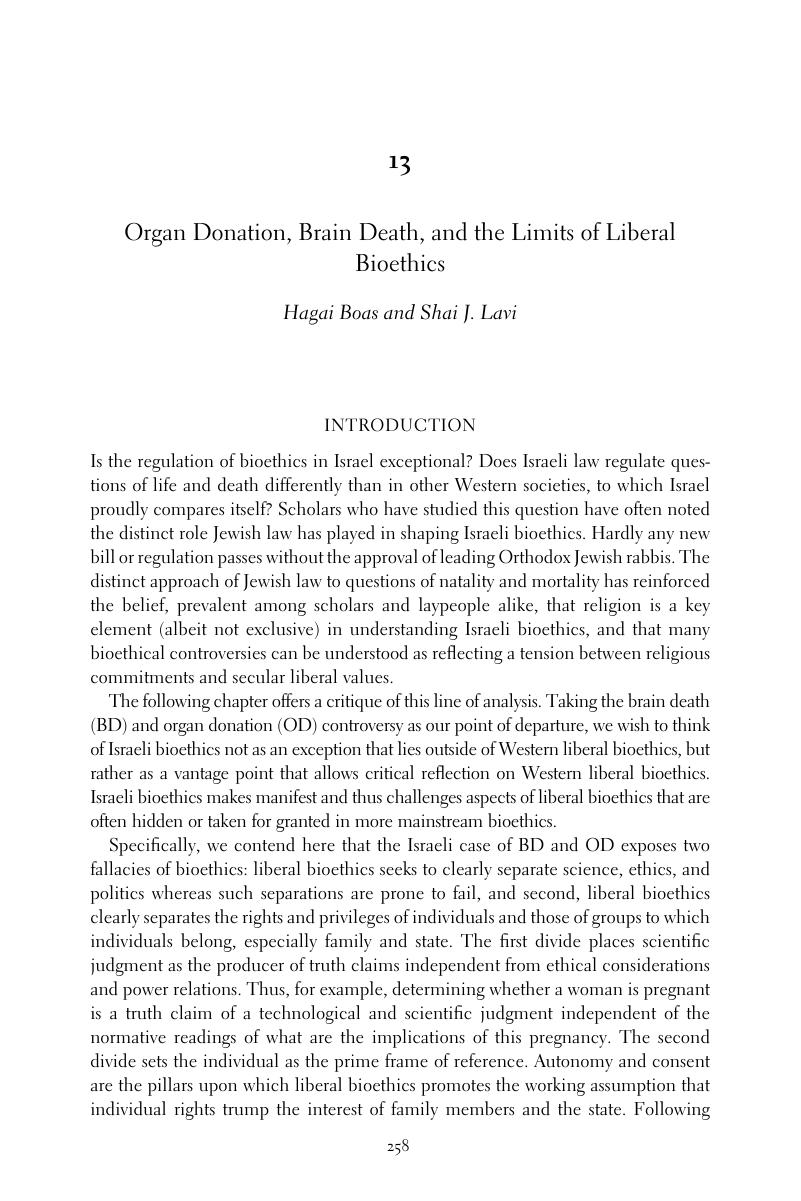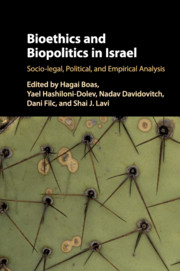Book contents
- Bioethics and Biopolitics in Israel
- Bioethics and Biopolitics in Israel
- Copyright page
- Contents
- Contributors
- Introduction: Bioethics in Israel
- Part I Bioethics as Biopolitics
- Part II Familialism and Reproduction
- Part III Is There an Israeli Exceptionalism?
- 11 Reckless or Pioneering? Public Health Genetics Services in Israel
- 12 The End-of-Life Decision-Making Process in Israel: Bioethics, Law, and the Practice of Doctors
- 13 Organ Donation, Brain Death, and the Limits of Liberal Bioethics
- 14 Toward an Israeli Medical Ethics
- 15 Tilting the Frame: Israeli Suicide as an Alternative to Suicide in Israel
- Index
- References
13 - Organ Donation, Brain Death, and the Limits of Liberal Bioethics
from Part III - Is There an Israeli Exceptionalism?
Published online by Cambridge University Press: 21 December 2017
- Bioethics and Biopolitics in Israel
- Bioethics and Biopolitics in Israel
- Copyright page
- Contents
- Contributors
- Introduction: Bioethics in Israel
- Part I Bioethics as Biopolitics
- Part II Familialism and Reproduction
- Part III Is There an Israeli Exceptionalism?
- 11 Reckless or Pioneering? Public Health Genetics Services in Israel
- 12 The End-of-Life Decision-Making Process in Israel: Bioethics, Law, and the Practice of Doctors
- 13 Organ Donation, Brain Death, and the Limits of Liberal Bioethics
- 14 Toward an Israeli Medical Ethics
- 15 Tilting the Frame: Israeli Suicide as an Alternative to Suicide in Israel
- Index
- References
Summary

- Type
- Chapter
- Information
- Bioethics and Biopolitics in IsraelSocio-legal, Political, and Empirical Analysis, pp. 258 - 276Publisher: Cambridge University PressPrint publication year: 2018
References
References
Newspaper Articles and Reports
Conference Presentations
- 2
- Cited by

